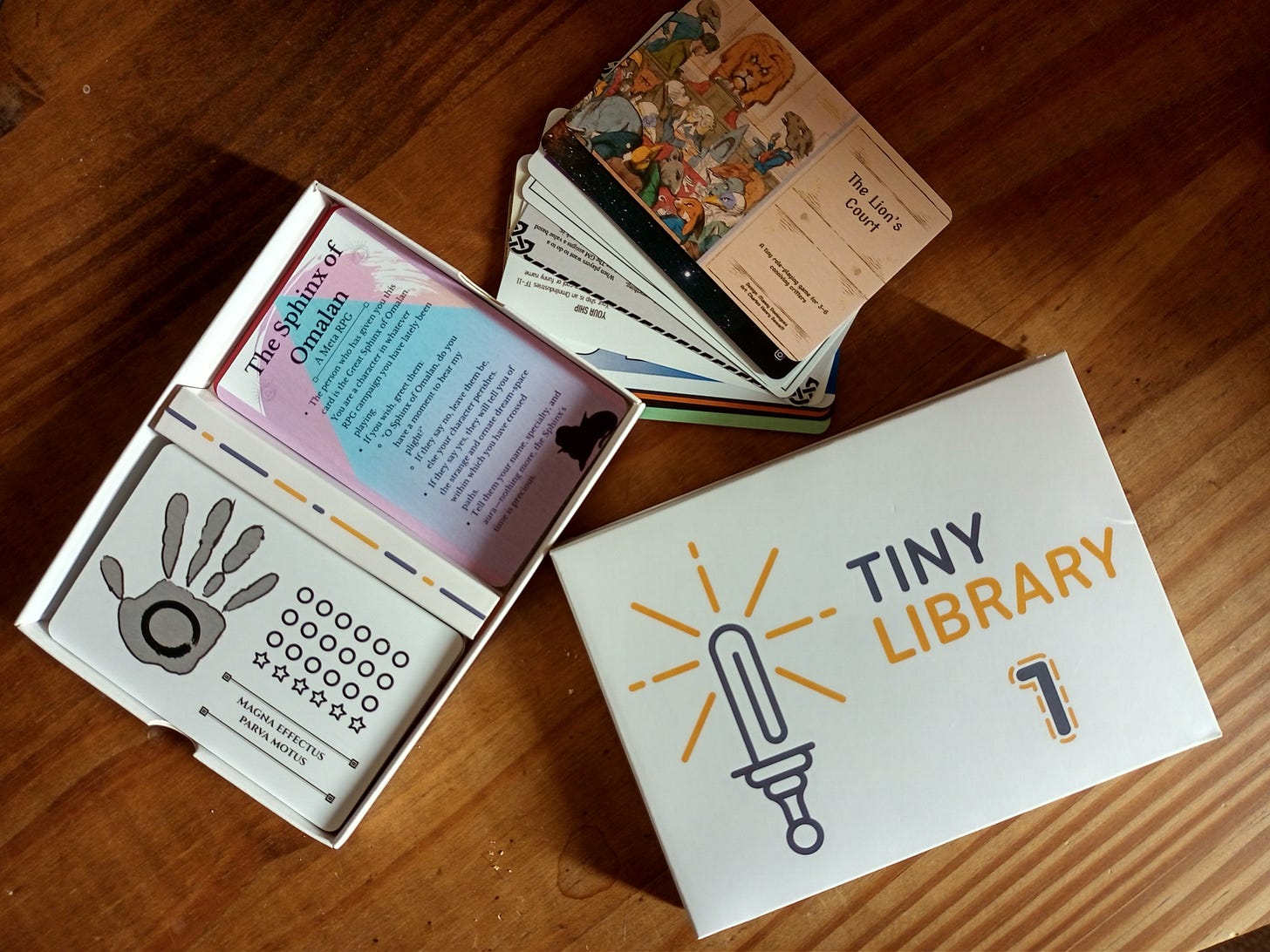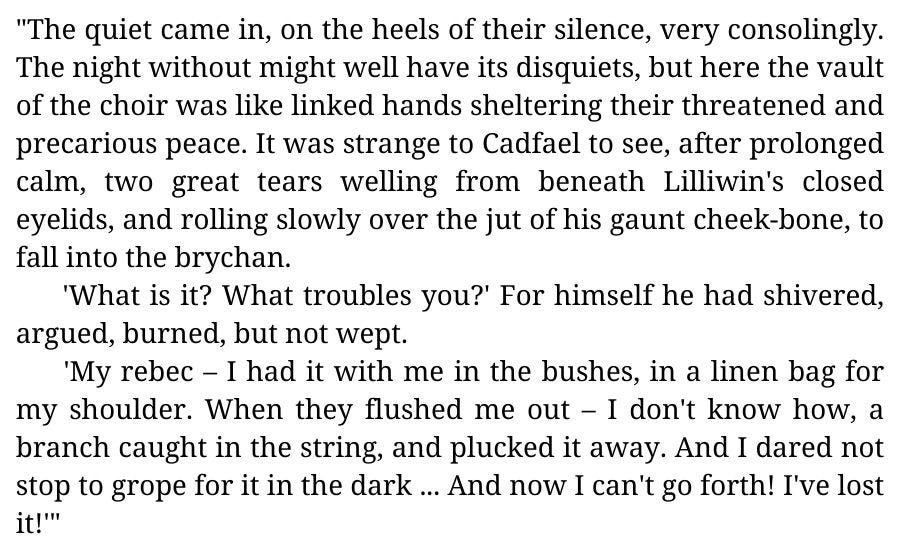This post can also be read on my Substack, Stray Bulletin.

TINY LIBRARY
I continue to train between Cambridge, London, Buckinghamshire and sometimes Matlock, picking up post and moving things around as I try to figure out whereabouts in the vicinity of my new job I can settle permanently, meaning in all likelihood for the rest of my life. One of the items I picked up on a recent visit is this collection of 50 single-card games, published by Long Tail.
It appeals to me greatly as a concept because I know many people who, like myself, enjoy tabletop, travel and role-playing games in theory, but struggle to find the time to familiarise themselves with complex rules, or the lore of a fantasy world, or to summon the particular kind of creative performativity needed to be able to act out an emergent story. The ideal kind of game, to my mind, is one that can be cracked open for the first time on a train journey, laid out on a carriage table, then learned and played in less than 30 minutes – but which has some element of character development or fantasy interaction therein.
But I’m keen to experiment with games that are even faster and more straightforward than that. I like the idea of having a few simple cards or rulesets on me at any one time, or perhaps a puzzle or two, linked to my writing and research, to serve in the place of business cards or icebreaker conversations.
THE SANCTUARY SPARROW
Last year I decided to make my way through every book in Ellis Peters’ Cadfael series, since they’re short, conventionally plotted, and full of period detail, being set in 12th century Shrewsbury. One particular passage in the seventh novel, The Sanctuary Sparrow, rather unaccountably moved me more than anything I’ve read in fiction in the last few years. A penniless bard, Lilliwin, is chased and beaten by a mob after he is falsely accused of murder. Finding temporary safety in the abbey, he’s nursed by Brother Cadfael, the abbey herbalist:

After I read this passage, I had to pause for a while. I felt very sore. I wanted very badly to go out and retrieve Lilliwin’s rebec for him. I reread the page three or four times, before pushing on, reluctant to leave the moment behind.
I don’t expect, even in its proper context, it would have the same effect on anyone else – and in fact, in a way, I hope it does not. I hold out for and treasure that which is peculiar to me, just as I love most in other people what is peculiar to them. One of the wonderful things about the breadth of literature and other cultural artefacts that we have access to is that they allow for so many of these peculiarities.
It’s preferable, I would suggest, that each of us is moved in their own way, by a stray detail or otherwise, than that we’re all moved together, as if we are of one mind, by the same parts of the same works. And as it happens, I’ve found that most of what comes recommended on the basis that it’s intensely emotionally affecting turns out to be fairly bland. That’s as it should be; some degree of unity of feeling makes sense when we’re reacting to real events and circumstances, but I don’t see why it should be the same with the arts.
TOXIC JOURNALISM
Most of my impulsive social media activity last week consisted of reactions to articles and opinions posted about Kate Clanchy and her books, following the news that she has separated from her publisher. All current editions of her works, we learned, were to be withdrawn with immediate effect – not an outcome I or anybody else asked for. But as with so much else, it seems impossible for any journalist to report the basic facts of the situation, since they’re all too invested in a narrative which those facts don’t fit.
Clanchy has faced fierce criticism for the content of her book, Some Kids I Taught and What They Taught Me. Quite simply, the criticism lands. That is, it is the force of the criticism itself that has carried the day. There have been no pitchforks, no protests, no blockades or book burnings. Passages in the book were highlighted, and Clanchy’s subsequent behaviour (particularly her response to said criticisms being aired) only seems to have convinced more onlookers that she is deeply in the wrong. We don’t know how exactly the relationship with her publishers, Pan MacMillan, deteriorated so badly over recent months, but it is not the result of any organised effort to destroy her or her career.
It clearly galls the commentariat class, however, that such criticism could be delivered – and produce such results – without their ministry. In article after article, the story is presented as if an arbitrary campaign were waged against Clanchy, using terms like ‘mob’ and ‘witch-hunt’. The fact that it was Clanchy who ignited the fire, by highlighting early criticism and asking for it be removed, is sidestepped, as is the fact that nobody ever actually called for her books to be taken off the shelves.
Most of my contributions, therefore, have simply been to re-state these facts under comments which omit or overlook them. But sometimes I run into variations of the ideological framework that really underpins all these misleading accounts, presented as counter-argument. What business have we, it asks, undermining someone who has been pronounced a ‘good person’ by powerful institutions? Clanchy won the Orwell Prize for Some Kids, as well as an MBE and the admiration of many individuals of esteem. As in every case where a statue comes down or the reputation of a historical figure is revisited, the ensuing panic is caused by the realisation that status can be undone. This is what most commentators really mean by ‘cancelled’, after all: demotion. The authority they wielded over others now weakened.